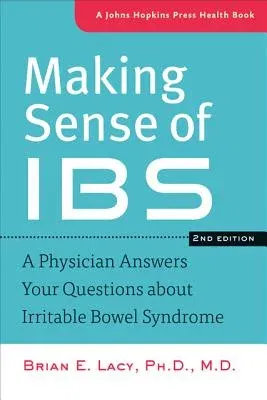Brian E Lacy
(Author)Making Sense of Ibs: A Physician Answers Your Questions about Irritable Bowel SyndromePaperback, 1 December 2013

Qty
1
Turbo
Ships in 2 - 3 days
In Stock
Free Delivery
Cash on Delivery
15 Days
Free Returns
Secure Checkout

Reading Age
Ages: 18
Grade Levels
13
Part of Series
Johns Hopkins Press Health Books (Paperback)
Print Length
392 pages
Language
English
Publisher
Johns Hopkins University Press
Date Published
1 Dec 2013
ISBN-10
1421411156
ISBN-13
9781421411156
Description
Product Details
Audience:
Ages: 18
Author:
Book Format:
Paperback
Country of Origin:
US
Date Published:
1 December 2013
Dimensions:
22.94 x
15.27 x
2.36 cm
Educational Level:
Grade Levels: 13
ISBN-10:
1421411156
ISBN-13:
9781421411156
Language:
English
Location:
Baltimore
Pages:
392
Publisher:
Weight:
553.38 gm